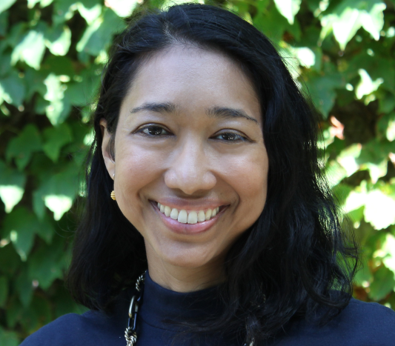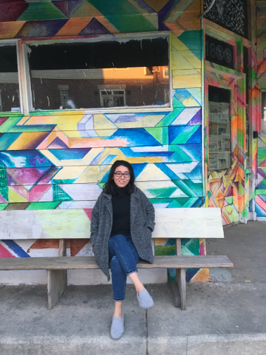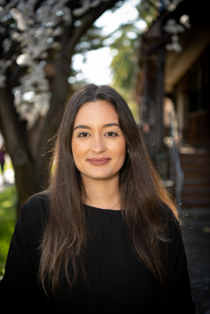2021 Student Paper Competition Award Winning Abstracts
Congratulations to the student paper competition winners and honorable mentions! The student paper competitions awards are proudly sponsored by the Divisions.
COMMUNITY RESEARCH AND DEVELOPMENT DIVISION
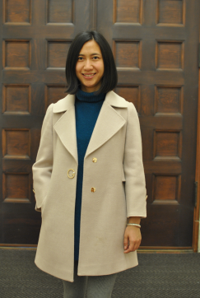 |
Winning Title: "Rethinking Migration-development Nexus in China: Why Chinese Ethnic-minority Migrant Workers Persist in the Precarious Urban Labor Market"
Author: Rui Jie Peng
Affiliation: The University of Texas at Austin
E-mail: ruijie.peng@utexas.edu
Abstract:
This article investigates heterogenous migration-development interactions by examining Chinese ethnic-minority migrant workers’ migration and labor market experiences. Based on 15 months of ethnographic fieldwork in a Qiang ethnic minority migrant-sending village, this study documents that the current state-led development planning has led to rising precarity both in the urban labor market and the ethnic-minority homelands. Yet, Qiang migrant workers continue to migrate and persist in the precarious urban labor market even though their unsteady jobs cannot sustain them. I apply an intersectional lens to examine the meanings ethnic-minority migrant workers attach to labor market experiences and migration by linking the rising precarity in rural and urban development. I find that the men appealed to individual adventure to construct a sense of having no place in the rural economy, but the women adopted the trope of wage-earning migrant workers to emphasize migration as a family responsibility. As the urban labor market becomes more precarious, their social networks channeled them to ethnicized and gendered sub-markets. The Qiang men relied on clustered social networks to find informal service jobs while the women faced a constrained network that pushed them into temporary work. Their aspirations to participate in the global modernity, tempered by anxieties about ethnic and gender prejudices, reinforce their desire to remain and seize further opportunities. This research connects both the migration origin and destination to illuminate how ethnic minority workers’ work experiences, aspirations, and anxieties (and subjectivities) shape their migration patterns.
CONFLICT, SOCIAL ACTION, AND CHANGE DIVISION
 |
Winning Title: "Restoring Social Order: How CASH and the Urban Rebellions Produced Neighborhood Housing Services, Inc."
Author: Daniel G. McClymonds
Affiliation: University of Pittsburgh
E-mail: dam256@pitt.edu
Abstract:
Radical flank effect theory holds that the mobilization of radical social movement groups can alter the prospects of success for their more moderate counterparts. I refine this theory by developing a more precise account of the leverage that radical flanks provide for moderate groups. Specifically, I argue that in some cases powerholders’ support for moderate groups stems from those groups’ utility in neutralizing the grievances underlying radical challengers without disturbing the foundational structures on which powerholders rely. I develop this theory with a case study using archival data and theoretically guided event structure analysis. The study examines the foundation of a housing-improvement non-profit organization (Neighborhood Housing Services, Inc. (NHS)) in 1968. The study finds that support for the NHS resulted from a positive radical flank effect wherein powerful benefactors supported the cause of Citizens Against Slum Housing (CASH) because of its utility in preventing a future recurrence of the urban rebellions without disturbing private housing markets, historical architecture, or the legacy of urban renewal. These results shed light on the conditions under which radical flank effects are likely to occur and the limits of the gains movements can make through these processes.
CRIME AND JUVENILE DELINQUENCY DIVISION
 |
Winning Title: "The ‘Lottery’ of Rape Reporting: Secondary Victimization and Swedish Criminal Justice Professionals"
Author: Caitlin P. Carroll
Affiliation: The University of Texas at Austin
E-mail: caitlin_carroll@utexas.edu
Abstract:
Research has established the possibility for rape victim-survivors to experience secondary victimization as a result of encounters with the criminal justice system. However, most of this work is based in Anglo-American countries, with less attention to the issue in the Nordic context. In this paper, I report on in-depth interviews with Swedish criminal justice professionals and their perspective on investigating and processing sexual violence cases, as well as interviews with help providers who work directly with rape victim-survivors and their external evaluations of the criminal justice system. While there is a general awareness of the need for an empathetic and sensitive response from police officers and support from the victim’s legal counsel, in practice, the process can be a ‘lottery’ for victim-survivors: while some individual police officers and lawyers are dedicated to victim-centered encounters, others are dismissive or hostile. I discuss policy initiatives, including training, specialization, and required competencies, that institutionalize and standardize victim-centered practices to promote a supportive environment for all sexual violence victim-survivors in the Swedish criminal justice system.
Honorable Mention Title: "Damned if You Do, Damned if You Don’t: How Formerly Incarcerated Men Navigate the Labor Market with Prison Credentials"
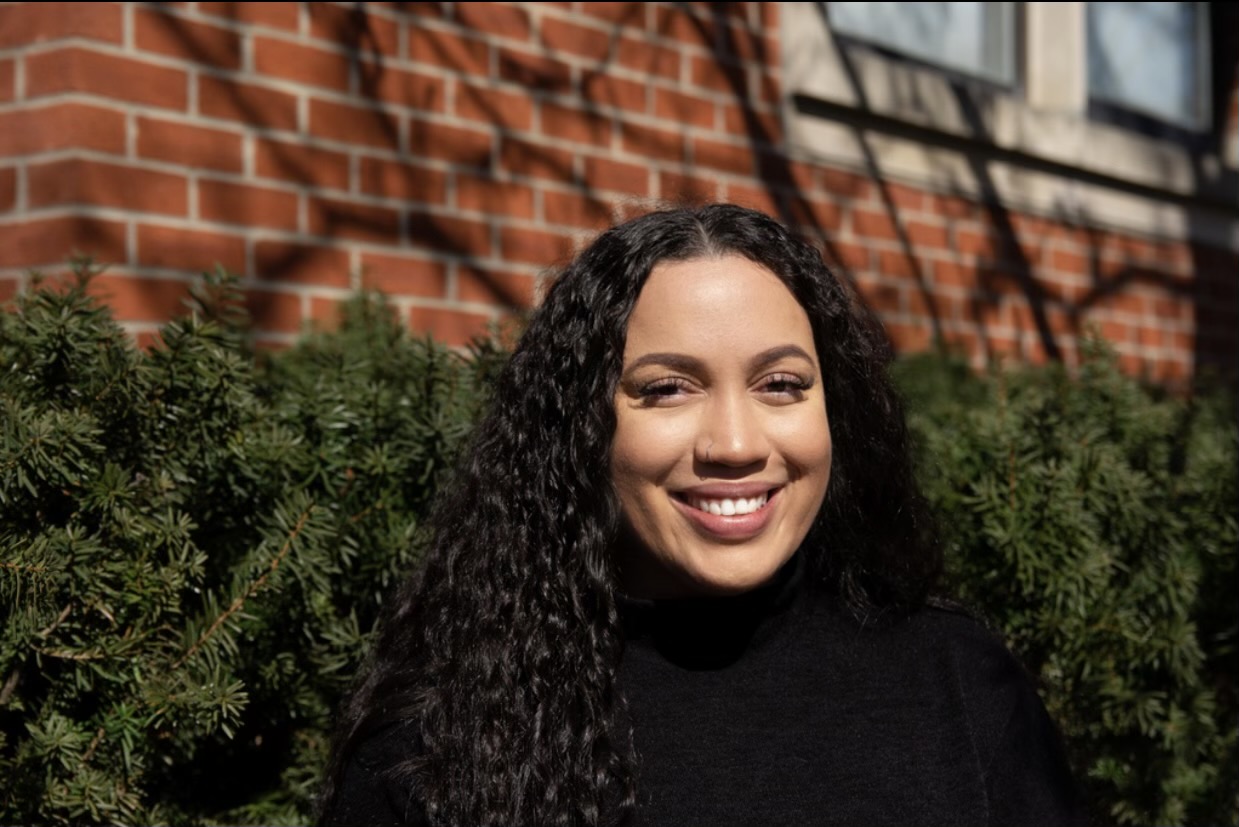
Author: Sadé Lindsay
Affiliation: The Ohio State University
E-mail: lindsay.131@osu.edu
Abstract:
Although employment is a central factor of successful reentry, formerly incarcerated men struggle to find work because of stigma surrounding criminal records and their relatively low levels of human capital. In-prison credentialing programs are proposed as one solution to alleviate these employment barriers. Yet, existing research neglects to consider that formerly incarcerated people encounter the prison credential dilemma or the reality that prison credentials send contradictory signals to employers, indicating both criminal histories and human capital. Drawing on 50 qualitative, in-depth interviews with formerly incarcerated men in Central Ohio, I examine how they navigate the labor market given the prison credential dilemma. I find that formerly incarcerated men were cognizant of this dilemma and developed tactics to mitigate the possibility of their credentials signaling their criminal histories. On job applications, they concealed, hid, and obscured the institutional affiliations of their credentials as to not signal their incarceration histories. In job interviews, however, they used these credentials to re-direct conversation surrounding their criminal histories and demonstrate redemption, rehabilitation, and employability. When these tactics were unsuccessful, formerly incarcerated men either doubled down on their education pursuits by acquiring human capital not tied to their incarceration histories or pursued temporary employment with hopes of exhibiting employability and securing permanent positions. This study has important implications for prison and reentry programs as well as policies geared toward reducing labor market discrimination experienced by people with criminal histories.
DISABILITY DIVISION
 |
Winning Title: "'When You Get into This World, You’re Constantly Connected to Things’: Creating and Reproducing Cultural Capital for People with Disabilities Participating in the Arts"
Author: Melinda Leigh Maconi
Affiliation: University of South Florida
E-mail: mmaconi@usf.edu
Abstract:
People with disabilities are often met with low expectations, even in spaces that claim to be inclusive. In order to resist negative attitudes and stereotypes, people with disabilities and their families may seek out disability-centered spaces to seek acceptance and high expectations. Through semi-structured interviews with 8 parents of people participating in a private, professional theater program for people with disabilities, I explore how families both use and create social capital through participating in disability-centered activities. Furthermore, people with disabilities can use these networks to find spaces that offer high expectations and increase one’s cultural capital as well, such as art programs that teach art as a craft that requires training and practice. However, midway through data collection, the Covid-19 pandemic moved many of the activities for people with disabilities onto online forums. Through follow-up interviews, I was able to capture how participants felt about the changes to their programs. Many parents expressed mixed feelings, that the activities online were not as fulfilling as when they were in-person but that they were also thankful that there was a safe way to stay involved. Just as their social capital had brought them to the organization, social interaction with other members of their activities was the thing missed most by those involved in the program. Social capital plays in integral role in the lives of people with disabilities and their families and it is important to explore how those connections and pathways change, as the world changes.
DRINKING AND DRUGS DIVISION
 |
Bruce D. Johnson Paper Winning Title: "Neighborhoods and Health: Assessing ‘Neighborhood Effects’ on Accidental Drug Deaths"
Author: Christopher Contreras
Affiliation: University of California, Irvine
E-mail: ccontre3@uci.edu
Abstract:
In this paper, I apply criminological theory to the epidemiological understanding of health-related deviant behavior such as problematic drug use. Although prior work on the social ecology of drug abuse has been informative, it has focused mainly on inner cities, relied on administrative units as proxies for “neighborhoods,” been descriptive, and lacked a theoretical framework. Research must go beyond describing the spatial distribution of drug abuse using administrative units in poor, inner-city communities. Studies should develop conceptual models that supply public health researchers and practitioners with a theoretical understanding of the spatial distribution of drug abuse. These models should also inform the proper area scale and influence that researchers would like to analyze. To that end, I build and subsequently test an epidemiological model informed by criminological theory that helps explain spatial variation in drug-related death rates across neighborhoods (i.e. “egohoods”) in a heavily suburban area (i.e. unincorporated Miami-Dade County, Florida). I integrate theoretical insights from the following criminological perspectives: social disorganization, relative deprivation, immigration revitalization, social institutions, and drug enforcement.

Honorable Mention Title: "Bridging Institutional Logics: Implementing Naloxone Distribution for People Exiting Jail in Three California Counties"
Author: David Showalter
Affiliation: University of California, Berkeley
E-mail: davidshowalter@berkeley.edu
Abstract:
How do the places in which people live affect their health? I use neighborhood effects research, Bourdieu’s concepts of capital and social space, and over two years of ethnographic fieldwork to develop a general theory of “place effects” and define three sets of mechanisms linking place of residence to health. Places of residence regulate access to capitals and institutions that promote health, expose residents to environmental hazards, and shape the everyday expression of inequality. I illustrate this theory using the case of heroin use amid the overdose crisis, drawing on interviews and observations in a small town in California’s remote backcountry. I describe how the mechanisms I define capture important aspects of nonurban social structure and interaction that urban research overlooks, and how this approach can help us understand persistent geographic health disparities.
EDUCATIONAL PROBLEMS DIVISION
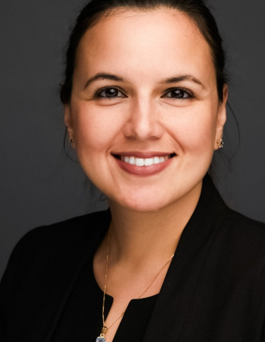 |
|
Winning Title: "Qué Vergüenza: Ambiguity around Diversity and Inclusion and How National Scholarship Recipients Became Ashamed of What Once Made Them Most Proud"
Author: Sandra V. Portocarrero
Affiliation: Columbia University
E-mail: svp2118@columbia.edu
Abstract:
How can ambiguity around diversity, equity, and inclusion (DEI) lead recipients of a merit- based national scholarship to become ashamed of holding this prestigious accolade? Focusing on the case of national scholarship recipients enrolled at an elite university in Peru, I examine how the lack of clarity around DEI has lasting negative effects that are sustained in everyday organizational life. Using participant–observer and in-depth interview data, I find that, though initially proud of holding a prestigious national scholarship, recipients learn to feel ashamed of this accolade. Unintentionally, governance board members, faculty, administrative staff, and prototypical elite students turn holding a prestigious national scholarship into a stigma. After internalizing the stigma, recipients learn to feel ashamed of their scholarship status, and deploy various cognitively exhausting strategies to manage their shame. My findings offer a case that reveals the role that social organizational processes within organizations play in the development of unpleasant emotions attached to the identities of disadvantaged people. It shows how well- intentioned DEI initiatives designed to foster the inclusion of disadvantaged people can backfire, negatively affecting individuals, groups, and organizations.
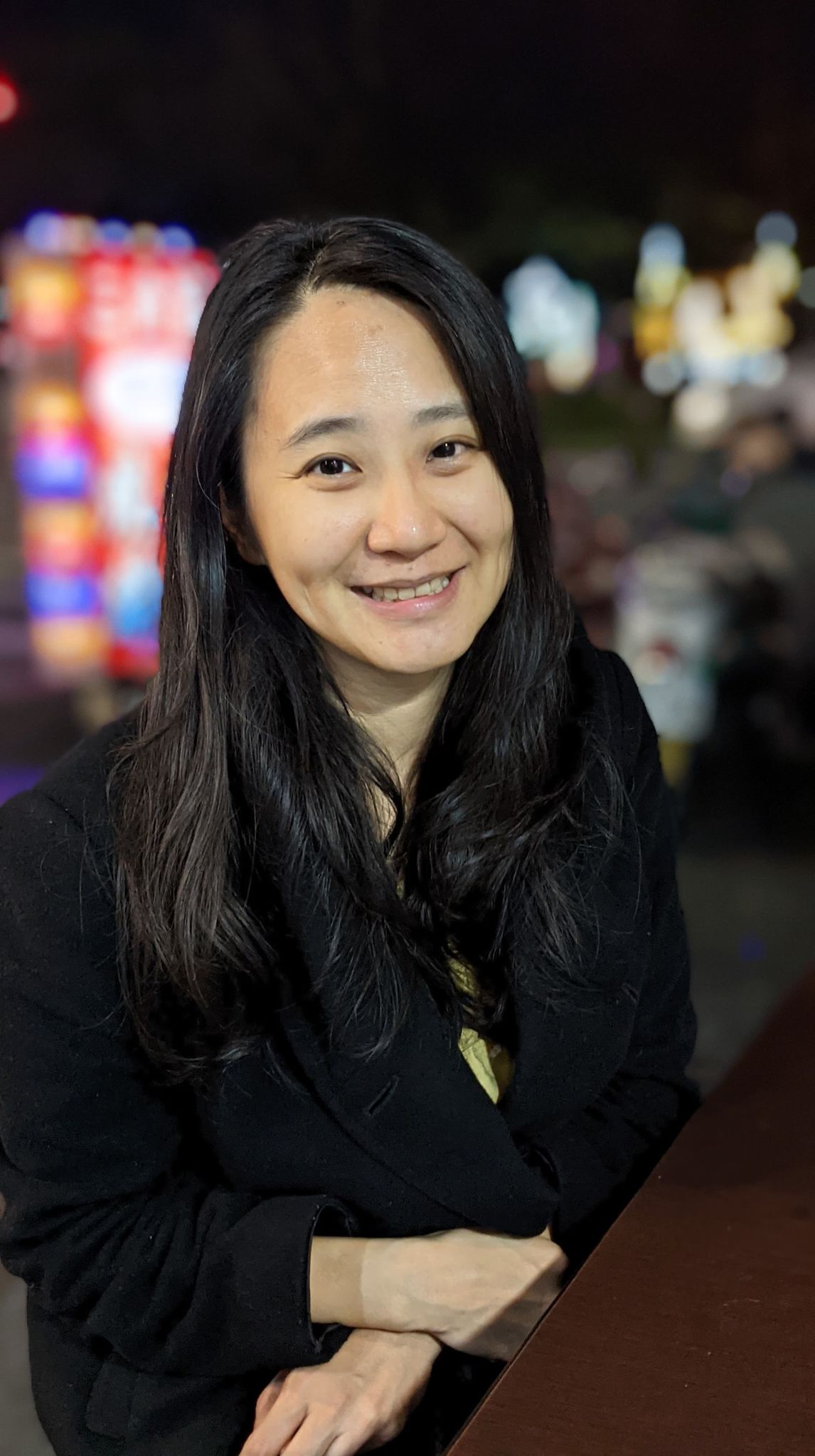 |
Honorable Mention Title: “Status Competitions in the Digital Era: Degree-seeking, Public Credentialism, and Informal Counseling in Two Taiwanese Social Media Sites”
Author: Ruo-Fan Liu
Affiliation: University of Wisconsin-Madison
E-mail: mikki.liu@wisc.edu
Abstract:
Students with college degrees are likely to obtain satisfactory employment, but few studies examine how students assess the value of degrees when they are inadequate. Based on content analyses of 1,260 posts on a Dcard undergrad forum and 640 posts on a PTT senior high forum, which are the two most influential local social media sites in Taiwan, I investigate how students make sense of the value of degrees and how online platforms shape dominant narratives on choosing a degree. I argue that the value of a degree is congruently defined by the messages surrounding teenagers, which reassign, redefine, and place degrees in the existing status hierarchy. I call this phenomenon “public credentialism,” which is a collective status-building process through which individuals assign value to degrees through online narratives, social closure, and online argument styles. While the literature on college choices is dominated by quantitative rational-choice studies, digital ethnography sheds light on the meaning-making process and advances the discussion on relative value in credential theory.
ENVIRONMENT AND TECHNOLOGY DIVISION
 |
Brent K. Marshall Paper Winning Title: "Climate Change Concern among Youth: The Unexamined Role of Civics Education and Institutional Trust in Elevating Cross-national Climate Change Risk Perceptions"
Author: Erika L. Kessler
Affiliation: Teachers College and Columbia University
E-mail: elk2144@tc.columbia.edu
Abstract:
Although scholars have long documented perceptions of climate change and the public’s evolving response to the perceived risk it poses, only more recently have these analyses begun to examine youth and their views of the issue. Given that education has traditionally been considered a long-term strategy to promote sustainability among youth, this article conducts a cross-national and comparative study of students from 22 countries to evaluate factors commonly associated with youth perceptions of climate change as a threat to the world’s future. In doing so, this study finds that promoting institutional trust and civic knowledge may increase student climate change concern to a greater degree than other, more emphasized, curricular and co-curricular environmental school opportunities. These new findings reveal potential pathways for future climate change education research, policy, and practice to help promote greater climate awareness and action among youth.
Keywords: Climate, Environmental Education, Civic Engagement, Trust, International Assessment
 |
Honorable Mention Title: “Materializing Inequality: The Production of Environmental Risks for Small-scale Farmers in the Palm Oil Industry”
Author: Angela Serrano Zapata
Affiliation: University of Wisconsin-Madison
E-mail: serranozapat@wisc.edu
Abstract:
If monocrops are known to be inefficient and cause environmental harms, why do they remain so prevalent in contemporary agriculture? This paper examines the pervasive use of monocrops in relation to colonial and corporate actors’ strategies for materializing their power through agriculture. To examine these issues, I focus on the case of the Colombian oil palm industry and ask, how have social hierarchies shaped the environmental transformations of oil palm crops over the past century? And, how have these transformations affected inequalities between growers today? Over the past 100 years, industry actors have materially transformed the genetics and management practices of oil palm trees and crops. I find that colonial goals drove these transformations, which today are materialized in landscapes and facilitate value extraction for corporations while impoverishing small-scale farmers. In Colombia, small-scale independent farmers coexist with large-scale plantations and a recent oil palm disease revealed the dramatically different distribution of risks between farmers with different farm sizes. I argue that the continued legacy of colonial material transformations creates a path dependency in the materiality of oil palm crops, which has resulted in an unequal distribution of risks between small- and large-scale oil palm growers. Building on multispecies studies and agroecology scholarship, this paper provides tools for the sociological study of how relations of social inequality shape and are shaped by material transformations of space and more-than-human-beings.
GENDER DIVISION
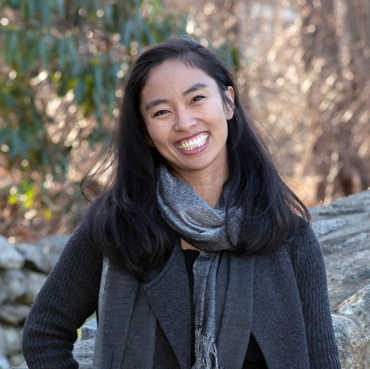 |
Winning Title: "Let’s (Re)Tweet about Racism and Sexism: Responses to Cyber Aggression toward Black and Asian Women"
Author: Paulina d. C. Inara Rodis
Affiliation: Pennsylvania State University
E-mail: inararodis@psu.edu
Abstract:
Online anyone’s words can easily be amplified – and on Twitter, the platform’s algorithm highlights tweets that gain attention from other users, which can exponentially reinforce a tweet’s popularity. Moreover, retweets can help spread a message well beyond the reach of its original poster. Thus, users’ interactions with posts containing or making reference to racism or sexism both illuminate the ways individuals accept, challenge, or engage with racism and sexism online, and shape how those messages spread. Using an original dataset of 59.5 million tweets, I test how particular features of messages referencing Black and Asian women predict user engagement (retweets, likes, and replies). This analysis further focuses on messages including terms that express racist or sexist content. Generally, messages including covert racist or sexist insults have a modest positive effect on all measures of user engagement (retweets, likes, and replies), which may suggest that social media environments allow individuals the time and opportunity to contend with topics that can be more difficult in-person. Additionally, variations in engagement with tweets that include references to women, Black or Asian individuals implies that users respond differently to messages involving references to and normative images of different racial, ethnic, and gendered identities. This research illuminates how specific manifestations of racialized and gendered language referencing women, Black and Asian people can not only encourage more engagement, but also share, accept, or challenge messages about marginalized identities.
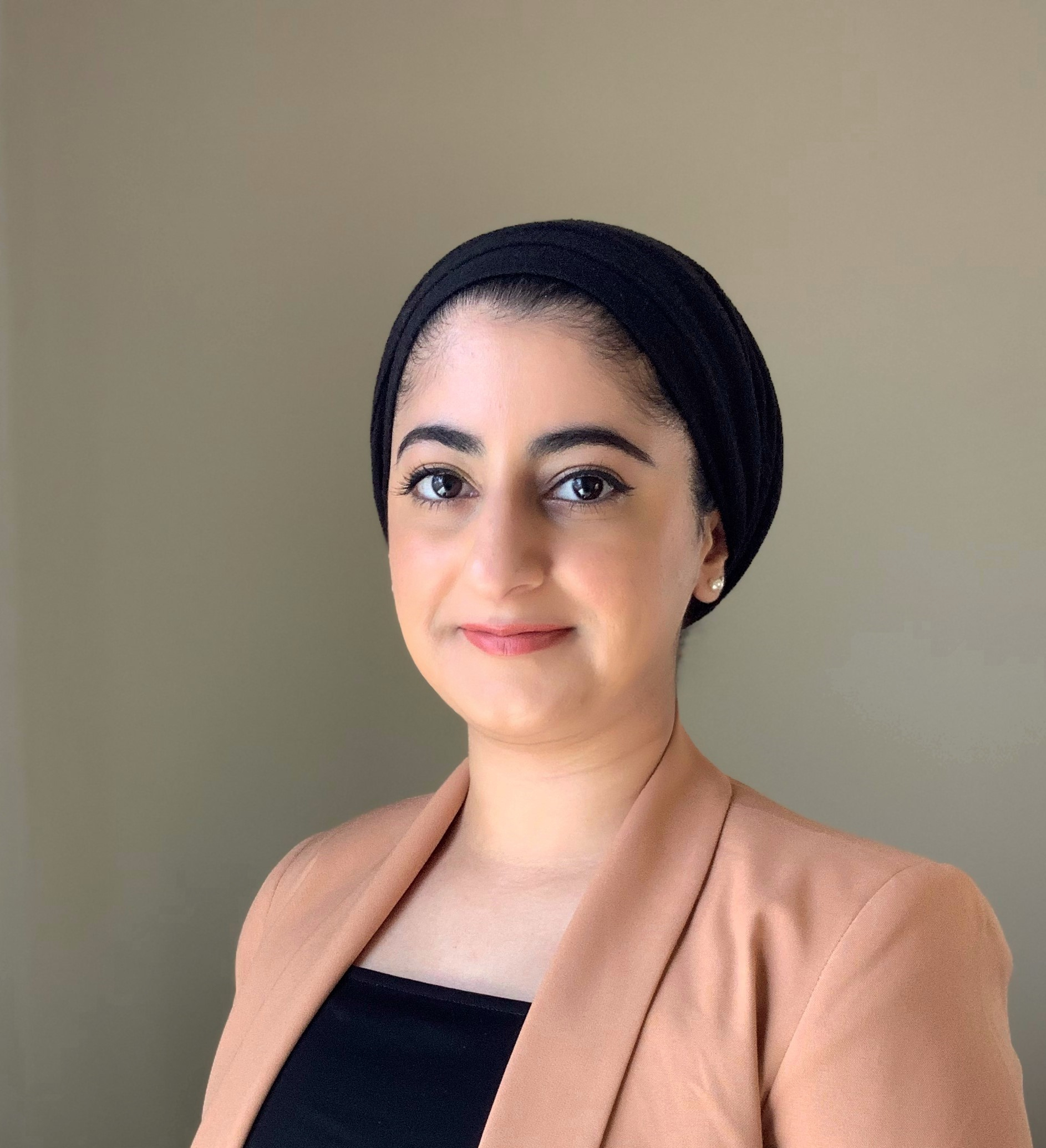 |
Honorable Mention Title: “(Un)Veiled Expectations: Muslimah Influencers and the Politics of Dejabbing on Social Media”
Author: Inaash Islam
Affiliation: Virginia Tech
E-mail: inaashi1@vt.edu
Abstract:
This paper contextualizes contemporary conversations around Muslimah social media influencers’ public acts of dejabing (i.e., taking off the hijab) within discourses of Islamophobia to offer insight into the kinds of racialized and gendered responsibilities that are imposed on Muslim women in western spaces. I use data collected from interviews with 14 Muslimah social media influencers, a survey distributed among 188 of their social media followers, and 250 social media posts produced by Muslimah influencers, to identify and describe the three kinds of expectations held of Muslimah influencers in western spaces: The Good Muslimah, the Strong Muslimah, and the Doubly Burdened Muslimah. My data shows that Muslimah influencers navigate and negotiate these expectations in various ways, but in doing so, run the risk of the double bind – that is, critiquing the Muslim community’s gendered surveillance at the cost of reinforcing Islamophobic and liberal western feminist narratives of Muslim misogyny and Muslimah oppression. This study highlights how, for Muslim women, navigating public expressions of faith in western spaces is constrained by both racialized Islamophobic discourses, and Muslim community pressures and gendered expectations of embodying an ideal Muslim womanhood. In unfolding the nuances involved in the challenges and negotiations of dejabing publicly, I emphasize that we can glean a better understanding of the kinds of racialized and gendered pressures facing Muslim women – hijabi or not – in Islamophobic and increasingly secularized western contexts today.
 |
Honorable Mention Title: “Masculine Distinction: Family Formation and the Emergence of Class Identities in Post-communist Vietnam”
Author: Phung N. Su
Affiliation: University of California, Berkeley
E-mail: psu4lcs@gmail.com
Abstract:
What is the relationship between masculinity and national integration into global capitalism? Against a backdrop of Vietnam’s moment of transition from socialism to capitalism, there emerges a tale of masculinity and class that finds expression in Vietnamese men’s efforts to form families. Through the study of two groups of rural-to-urban male migrants in Ho Chi Minh City, I show that Vietnamese men draw on their respective class ideologies that have emerged during Vietnam’s economic transformation to articulate different interpretations of the family and women’s role in it. As I will show, upwardly mobile men pursue the dual-income family as a model of progress yet this family model masks the long-established and significant participation of Vietnamese women as economic players in history. Low-income men, on the other hand, aspire to resurrect the “traditional” family wage arrangement yet their desires belie the fact that this family set-up is a very contemporary import into Vietnam, not an echo of the past. For these men, class distinction is imagined through a lens of gender and takes the form of the family. This work shows how different groups of men selectively deploy local and global understandings about gender roles and relations to secure their own projects of masculinity, projects that predicate on the renegotiation and re-envisioning of Vietnamese womanhood.
GLOBAL DIVISION
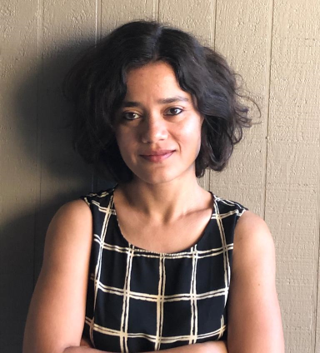 |
Winning Title: "Love of Money: Rewards of Care for India’s Women Community Health Workers"
Author: Vrinda Marwah
Affiliation: The University of Texas at Austin
Email: vrinda.marwah@utexas.edu
Abstract:
What are the rewards of paid care work for frontline health workers? I focus on India’s women community health volunteers, the largest such workforce in the world. Appointed since 2007 and numbering one million, these women are paid per-case incentives to connect the poor and marginalized to government-run health services. Using 14 months of ethnographic fieldwork in Delhi and Punjab, including 80 interviews, I find that women community health volunteers (called Accredited Social Health Activists or ASHAs) experience extrinsic rewards in paid care work. ASHAs earn not only from their official wages, but also from two unofficial streams: a) the boosting of income from non-ASHA work, and b) the earning of commissions from private hospitals. I also find that the intrinsic rewards ASHAs report—emotional gratification, relative autonomy, and skill-building—are co-constituted with extrinsic rewards, that is, they are tied to their earnings. This calls into question the “Love versus Money” binary, used to frame much of the discussion on care work. I argue instead for a “Love of Money” framing, that is, money as a reward and money as begetting other rewards. My findings highlight the significance of globalizing the empirical research on paid care work.
 |
Honorable Mention Title: “The Rainbow Nation and the Gays it Excludes: Homonationalism in a Modern South Africa”
Author: Miriam Gleckman-Krut
Affiliation: University of Michigan
E-mail: mgleck@umich.edu
Abstract:
A rise in state-sanction violence against lesbian, gay, bisexual, transgender and intersex (LGBTI+) people forces many people to migrate -- from Cameroon and Egypt, Poland and the United States. South Africa stands out as unique globally for its legal promise to this population. Unlike other major refugee recipient countries, South Africa explicitly provides refugee status to people fleeing persecution on the basis of sexual orientation and/or gender identity (SOGI). Yet the country denies that status to most who apply due to SOGI-related persecution, including people who may well qualify under international and domestic law. I offer an explanation for this case of legal decoupling, based on analysis of 65 refugee status determination letters providing the state's rationale for denying people who applied on the basis of persecution related to SOGI, as well as eleven months of ethnographic research between 2018 and 2020 at Cape Town legal and paralegal clinics providing services to refugees. Using Jasbir Puar's work on homonationalism, I argue that the country’s policies on SOGI asylum serve material and symbolic functions for the state. This concept is primarily applied to economically and politically powerful countries in the Global North. I contribute to thinking on homonationalism reflections on its manifestations in the Global South. Whereas the concept was originally used to describe how the United States keeps communities it racializes out of its borders, in South Africa, homonationalism seems to occur within the country’s borders. The phenomenon of internal exclusion matters theoretically and empirically for homonationalism theorizing, as well as for work on legal decoupling.
HEALTH, HEALTH POLICY, AND HEALTH SERVICES DIVISION
 Winning Title: "Occupational Requirements of Care Work and Inflammation among Early-career Care Workers"
Winning Title: "Occupational Requirements of Care Work and Inflammation among Early-career Care Workers"
Author: Lilla K. Pivnick
Affiliation: The University of Texas at Austin
E-mail: lilla.pivnick@gmail.com
Abstract:
An educationally diverse segment of the young adult population starts their careers in the occupational sector of care work, which is characterized by greater requirements for compassion, therapeutic responsibility, ethical responsibility, direct service provision, and sociality than many other sectors. This study uses biomarker data from the National Longitudinal Study of Adolescent to Adult Health (n = 5,220) and occupational data from the Occupational Information Network to identify associations between the occupational requirements of care work and a key marker of stress (chronic inflammation) among early-career workers, including variations by educational attainment. Results suggest that employment in care work predicts 13 percent higher levels of inflammation and that the level of ethical responsibility required by care-work occupations mediates this association. Associations between care work and inflammation decline with educational attainment. Findings highlight the interplay of occupation-level requirements and worker health, especially in care-work occupations.
LABOR STUDIES DIVISION
 |
Harry Braverman Paper Award Winner Title: "The Two-employer Problem: Strategic Dilemmas at the Heart of the Tipped Wage Debate"
Author: Hanna Goldberg
Affiliation: The Graduate Center, CUNY
E-mail: amanda.j.brockman@vanderbilt.edu
Abstract:
Millions of restaurant workers across the U.S. labor for an hourly wage below— even substantially below—the ordinary federal minimum wage. These workers earn a significant portion of their incomes in gratuities, directly from the customers they serve. The special legal status of tipped workers is a consequence of a 1966 amendment to the Fair Labor Standards Act, which instituted a federal subminimum wage for tipped workers. While some states and jurisdictions have implemented their own higher tipped wages or eliminated the tipped wage entirely, the federal tipped wage has remained frozen for 31 years at $2.13 per hour. The latter half of the 2010s saw a resurgence of anti-tipped wage campaigns, which highlight the connection between this wage and the perpetuation of inequality and racial and gender hierarchies. These campaigns have met with a smattering of successes and a wave of industry backlash—from restaurant employers and workers alike. Drawing on a workplace ethnography conducted in the restaurant’s front-of-house and in-depth interviews with tipped food service workers, in this paper I attempt to shed light on the strange history and knot of interests at the heart of the tipped wage, and look to the tipped labor process itself to begin to answer a central question: why would any workers oppose a wage increase from their employers? In this paper, I argue that the constituting of tips as a formal wage created something that I call a two-employer problem, wherein customers assume the role of secondary, and entirely unregulated, employers in the workplace. Ultimately, I argue that, while many studies of tipped restaurant work demonstrate ways in which work for tips can be a boon, materially or experientially, for certain individual tipped workers, the tipped wage has created a longer-term strategic problem for workers in their position relative to management and their ability to organize to shape the terms and conditions of their work.
 |
Honorable Mention Title: “Framing Relative Deprivation: An Analysis of the Role of Social Comparison in Contemporary Teacher Protest Strikes”
Author: Amanda J. Brockman
Affiliation: Vanderbilt University
E-mail: amanda.j.brockman@vanderbilt.edu
Abstract:
This paper analyzes the role of social comparison in the 2018 and 2019 unprecedented wave of United States K-12 teacher protest strikes. To do this, I draw upon data derived from semi-structured interviews with 14 teachers who also served as leaders within their local strikes. My findings show that while teachers recognized that they were relatively deprived in comparison to 1) similarly-educated professionals due to sexism related to teaching being a feminized occupation and 2) some teachers in other areas, relative deprivation did not generally serve as a grievance motivating these strikes. Instead, relative deprivation was useful as a highly-resonant framing strategy. This differs from classical theory on the role of relative deprivation in social movements that has centered on the social-psychological impact of relative deprivation as a grievance in eliciting mobilization. This paper is important empirically because it advances social movement theory by showing how relative deprivation is, indeed, still useful in contemporary movement emergence, albeit in a novel way. My findings also have practical importance because they show a successful strategy for building social movement coalitions through highly-resonant frames centered on relative deprivation.
 |
Honorable Mention Title: “Economic Instability and Child Protection: Evidence from State Administrative Data”
Author: Julie Yixia Cai
Affiliation: University of Wisconsin
E-mail: cai72@wisc.edu
Abstract:
This paper uses administrative data from a sample of at-risk families for child protective services (CPS) involvement in Wisconsin to study the link between earnings instability and CPS involvement. Specifically, I use event history analysis to estimate the relationship between earnings instability and subsequent child maltreatment investigations. I further examine whether adequate access to safety-net programs mitigates the likelihood of child welfare involvement when families encounter negative earnings shocks. I find that experiencing a negative earnings shock of 30 percent or more increases the likelihood of CPS involvement by approximately 18 percent. The effect diminishes and becomes nonsignificant when an earnings decline is compensated by sufficient benefit receipt. Each additional earnings drop is associated with a 15 percent greater likelihood of CPS involvement. Each consecutive quarter with stable income is associated with 5 percent lower probability of a CPS report. The results are more pronounced for abuse than neglect and are marginally significant for neglect reports. Findings suggest that unfavorable economic instability is linked to greater CPS-involvement risk, particularly for child abuse. Moreover, accessing sufficient social benefits as supplemental income when negative earnings shocks occur serves to effectively buffer against the risk of child maltreatment, particularly among families with young children.
LAW AND SOCIETY DIVISION
 |
Alfred R. Lindesmith Paper Award Winner Title: "Police-community Relations as an Alternative System of Neighborhood Representation"
Author: Tony Cheng
Affiliation: Yale University
E-mail: tony.cheng@yale.edu
Abstract:
Community nonprofits are typically presented as alternatives to police pursuing neighborhood social control through non-enforcement means. Yet on the ground, police as formal social controls are often permeating, influencing, and regulating nonprofits and the organizational landscape around them. Drawing on 18 months of ethnographic data on New York Police Department interactions with three community groups, this study examines how different organizational relationships with police emerge. Conceptualizing police as neighborhood mobilizers beyond law enforcers and order maintainers, this paper argues that police have (a) established and (b) empowered nonprofit neighborhood councils as alternative systems of neighborhood representation. First, these alternative systems of neighborhood representation serve as a platform for public endorsement of current policing as quality policing. Instead of traditional elected officials, police legitimize these neighborhood representatives over whom they exercise influence. Second, to empower this alternative system of neighborhood representation, police differentially provide key resources to neighborhood councils compared to police reform-oriented organizations. Rather than classic enforcement tools like citations and arrest, the findings identify how police differentially mobilize at the organizational-level: by selectively providing basic organizational resources, assisting with event operations, and granting administrative leniencies in permitting procedures. These strategic decisions help uphold an organizational landscape supportive of policing—offering new insights into the organizational challenges of police transformation.


